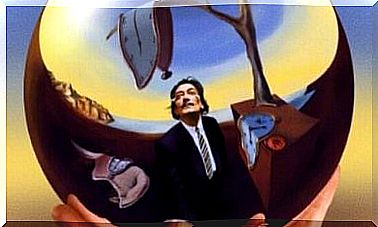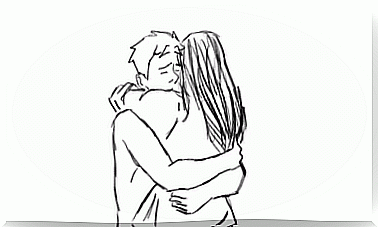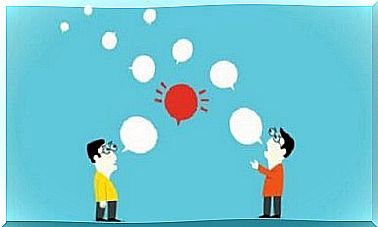Co-dependence And How It Destroys Relationships And Our Self-esteem
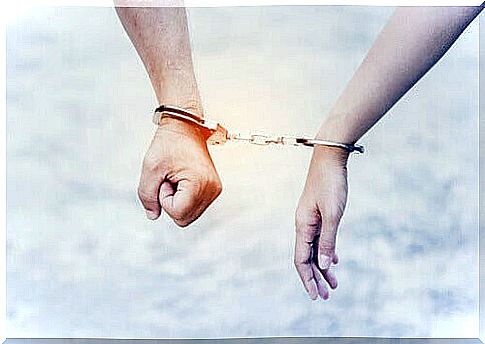
Co-dependence is when we are so dependent on another person that it becomes an addiction. This can occur in couples, and also in the family, for example between a mother and a daughter. No matter what context it takes in, in relationships where there is a clear addiction, the addict feels that he or she needs the other just to be able to continue living. Here we are talking about a psychological addiction that is very much linked to our emotions.
In this sense, addiction goes beyond the mere desire to be with someone. It has more to do with thinking that the other person is important and irreplaceable, and that they are linked to our well-being. Their presence in our lives becomes an absolutely necessary condition for us to be able to feel good. It is a need that we must satisfy in any way we can, in order to be happy.
On other occasions, it is not just one person who is dependent on the other, but instead both are dependent, only in different ways. Here we have what we call emotional co-dependence. In a co-dependent relationship, it is a dependent member whose happiness depends on their partner being next to them and not leaving them. On the other hand, your partner is also addicted, but this addiction is addictive to your partner’s addiction!
Co-dependence or altruism?
To make things clearer: the addicted person needs their partner, and their partner needs to protect them and help them and care about their well-being. Of course, it is true that being caring for our partner is extremely necessary to keep the relationship afloat. However, this must be done altruistically, out of love for the other person and not because of underlying addiction.
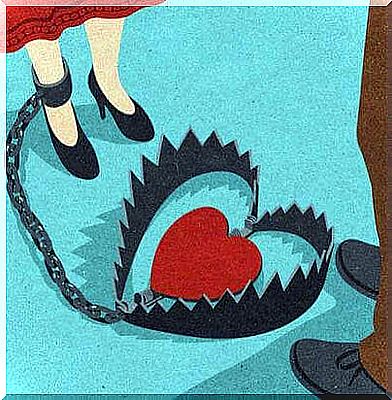
By taking care of the other person’s safety, protecting them excessively and caring for them as if they do not have the capacity to do it themselves, the dependent partner seems to find strength and meaning to strengthen their self-esteem. In addition, this way of acting is like the water that quenches the thirst of the addicted person. In this way, the pieces of the puzzle fit together perfectly and generate and strengthen the addiction.
What is the end result of this dynamic? Co-dependent couples never experience a healthy and satisfying relationship. Suffering and the feeling of emptiness become the most important actors in the relationship. In the rare cases where the relationship is lasting, both parties have to endure intense discomfort when they end up losing their own identity.
Symptoms and characteristics of emotional co-dependence
Although the protector may seem strong, this is not really the case. The truth of the matter is that when they feel that they care for their partner, they face the only way to take care of their own self-esteem. Here is a summary of the various symptoms of emotional co-dependence:
Self-esteem is non-existent
As we said earlier, people with co-dependency usually have low self-esteem which they try to replace with the feeling of usefulness. This benefit comes from knowing that they are of value to another person, in this case their partner.
In many cases , this deficiency began to form in childhood, in addictions in their main relationships in their early years. In these circumstances, they would be rewarded when they did something for someone else. From that point on, they learned that their value depends on what they can contribute to others.
They want to control the other person
Because their self-esteem depends on the other person needing them, they tend to use manipulation and control so that their “victim” cannot escape. To feel valuable and useful, they need the other person to continue to maintain their dependence on them, and they can only ensure this by controlling their partner.
Another common strategy for maintaining a person’s dependence on you is to undermine their self-esteem. If you make the other person feel useless and worthless, they need someone to come and “help” them. And of course, that’s when it seems that the one you are going to “save” them, in a seemingly selfless and sacrificial way.
They fear the independence of the other
When they realize that the other person has taken some form of independent action, for example by making a decision alone, they panic. They are working feverishly to try to “restore” the situation to the way it was before. Therefore, it is not uncommon for them to leave what they are doing to “help” the other person. In this way, they continue to maintain their superior position as the protector of the other.
They are obsessed with their partner
As for what they think, they think they need to constantly monitor their partner. In this way, they become obsessed, and end up losing their own identity. They believe that making life easier for their partner is the only mission they can get well-being from. On top of that, if they make a mistake when they do this, it will be difficult for them to forgive themselves and they will be filled with frustration.

They have too great a need for approval
Approval from other people is often a valuable source of information to monitor our own development. But when we base all our self-confidence on the information we receive, it can be a problem. In this sense , co-addicts have a great need for approval that they try to hide, often without thinking about how they do it. And who would be better at giving them immediate approval than the addicted person?
They feel responsible for the other person’s feelings
Even though we know that the feelings of others do not belong to us, we can often feel responsible for how others feel. We should not be surprised by this because that is the way we have been raised.
We have often heard sentences like these: “Do not let Dad get mad at you”, “If you do, your mom will be upset”. However, this idea is much more prevalent in co-dependent people. They think that the other person feels good or bad depending on how they have acted. Because of this, they often end up taking on responsibilities that are not theirs to bear. They also feel guilty about things that have nothing to do with them.
They often owe it to their partner
On the one hand, these people need to feel useful to help their partner or someone else who is addicted to them. But the moment the other person does something that goes against their ideas, they tend to throw it back in their face or blame them. This is a strategy to make the other person feel bad and to make them change their behavior.
“With everything I do for you, this is the way you pay me”, is a very common expression in these situations. “You just do not understand how much I sacrifice for you” or “I have given up everything just to make you happy” are others. Can you identify with this in any way? Although these situations may surprise us, it is more common than we might imagine.
And so, if you feel that you are somehow involved in a relationship like this, you need to analyze what is happening. Give self-confidence a chance and dare to experience a healthy relationship!
Bibliographic references
Mellody, P., Wells, A., Miller, K., Codependence: what it is, where it comes from, how it sabotages our lives. Learn to face it. Paidós Iberica. 2005.
Mazzarello, R., Study on codependency and its influence on psychosocial risk behaviors. University of Barcelona.
